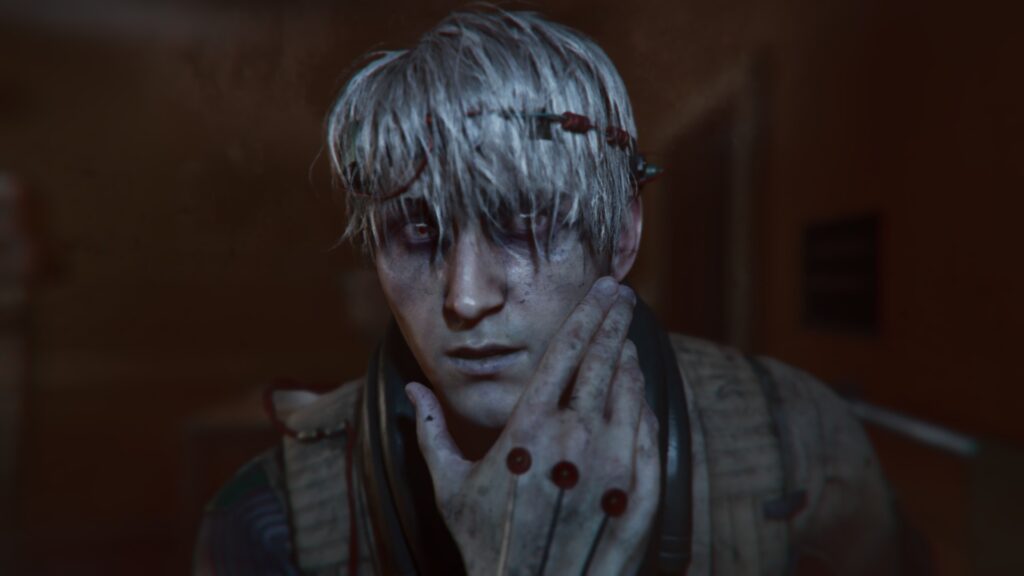KARMA: The Dark World blends dystopian thriller with surrealist horror to deliver a mind-bending cinematic experience like no other. Drawing inspiration from David Lynch, the game aims to evoke his unique approach to storytelling without the use of jump scares but via a continuous, unsettling atmosphere that encompasses every scene. The developers have succeeded in crafting a true psychological thriller that delivers a compelling yet ambiguous narrative, leaving me with more questions than answers.
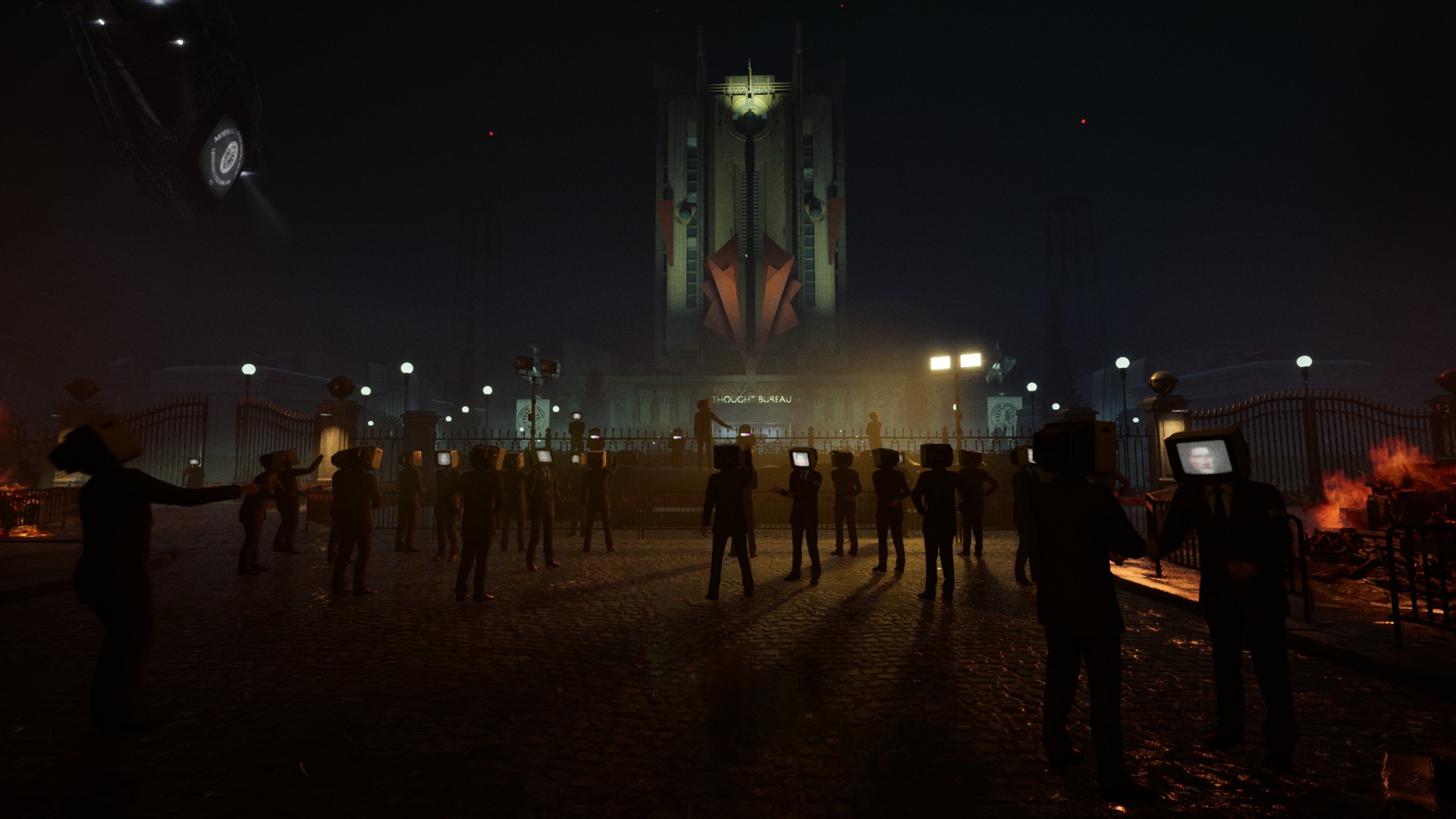
The opening act sets the stage in a bizarre and intriguing way. You awaken in Leviathan Hospital, with a camera tracking your every movement, recording your actions. Peering outside the open window, you witness a lifeless body on the ground while the surrounding environment appears to be glitching as if in a computer simulation on the verge of crashing.
A note on the table reads, “You people won’t succeed” – ‘Who are these people? What are they trying to accomplish?’ I wondered to myself. It’s one of many moments that perfectly captures KARMA’s focus on mystery and sets the tone for what’s to come.
As you venture deeper into the hospital, you enter a room filled with lifeless bodies piled in the corner. In contrast, others are arranged in bathtubs, cables running from them, appearing to keep
them alive. Overhead, multiple cameras silently record everything, reinforcing the themes of surveillance and control exerted by the Leviathan Corporation. Suddenly, I encounter an elderly man who utters, “The most important part is you have to get out. No, we must all get out of this place”. ‘What place?’ I wonder before spiralling into a memory of my childhood.
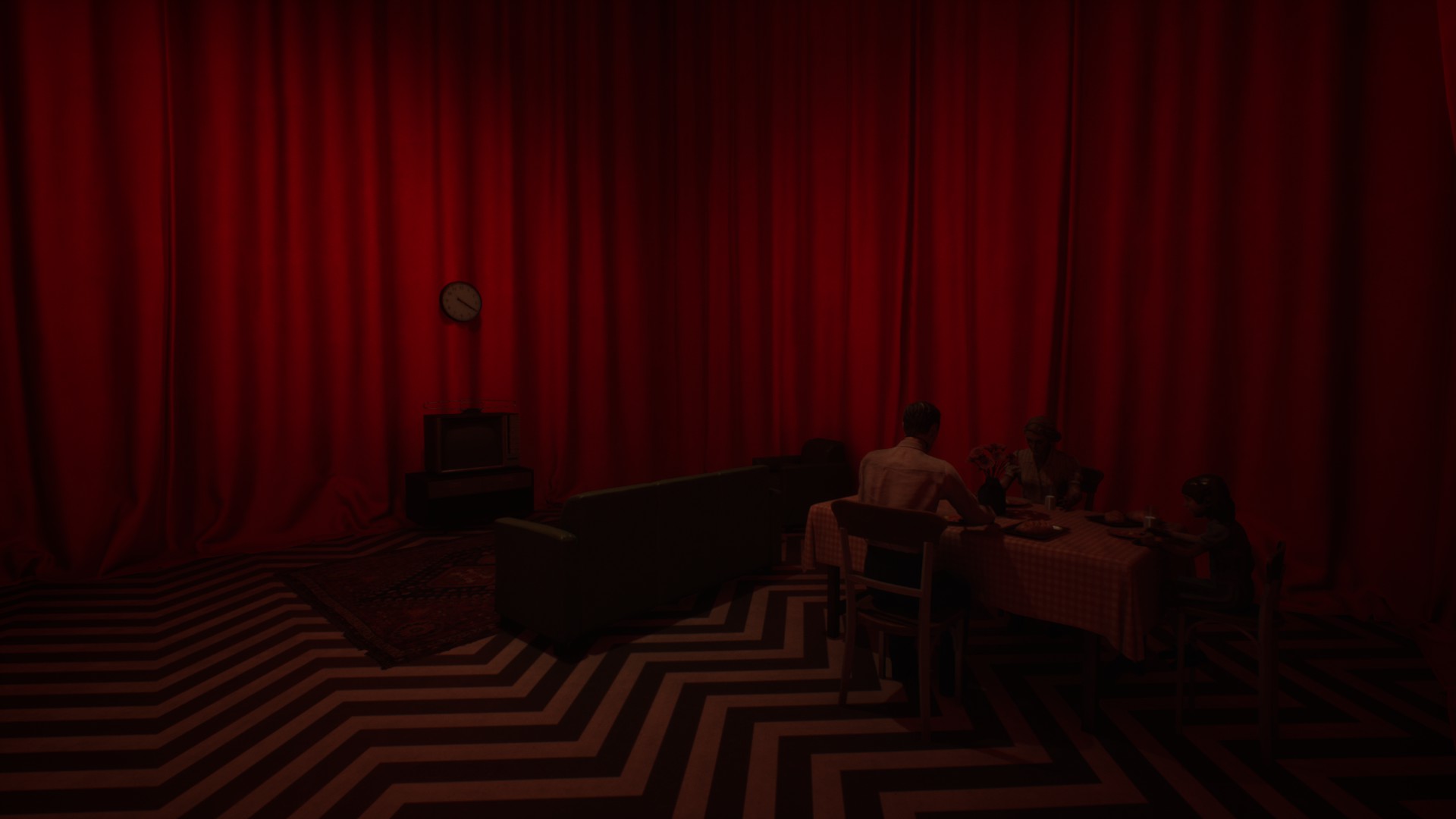
In this memory, you are introduced to ‘Mother’, the omnipresent voice of Leviathan, who subjects you to a rudimentary evaluation designed to indoctrinate you from an early age. Forced to decide between right and wrong in a series of questions, the evaluation instills clear principles of conformity, dedication, indifference, loyalty, and reservation. It’s a chilling reminder that in this world, emotion and individuality are liabilities – full allegiance to Leviathan is demanded at all costs.
KARMA: The Dark World’s dystopian worldbuilding deepens as you learn that every citizen is assigned an ID number and social level, with even minor infractions leading to severe penalties. You’re always being watched, and scattered memos throughout the world constantly remind you of what the omnipresent Leviathan Corporation knows. This introduction lays the foundation for the game’s constant feelings of dread and fear, along with curiosity and intrigue at every turn, perfectly mimicking George Orwell’s book ‘1984’ – Big Brother is always watching.
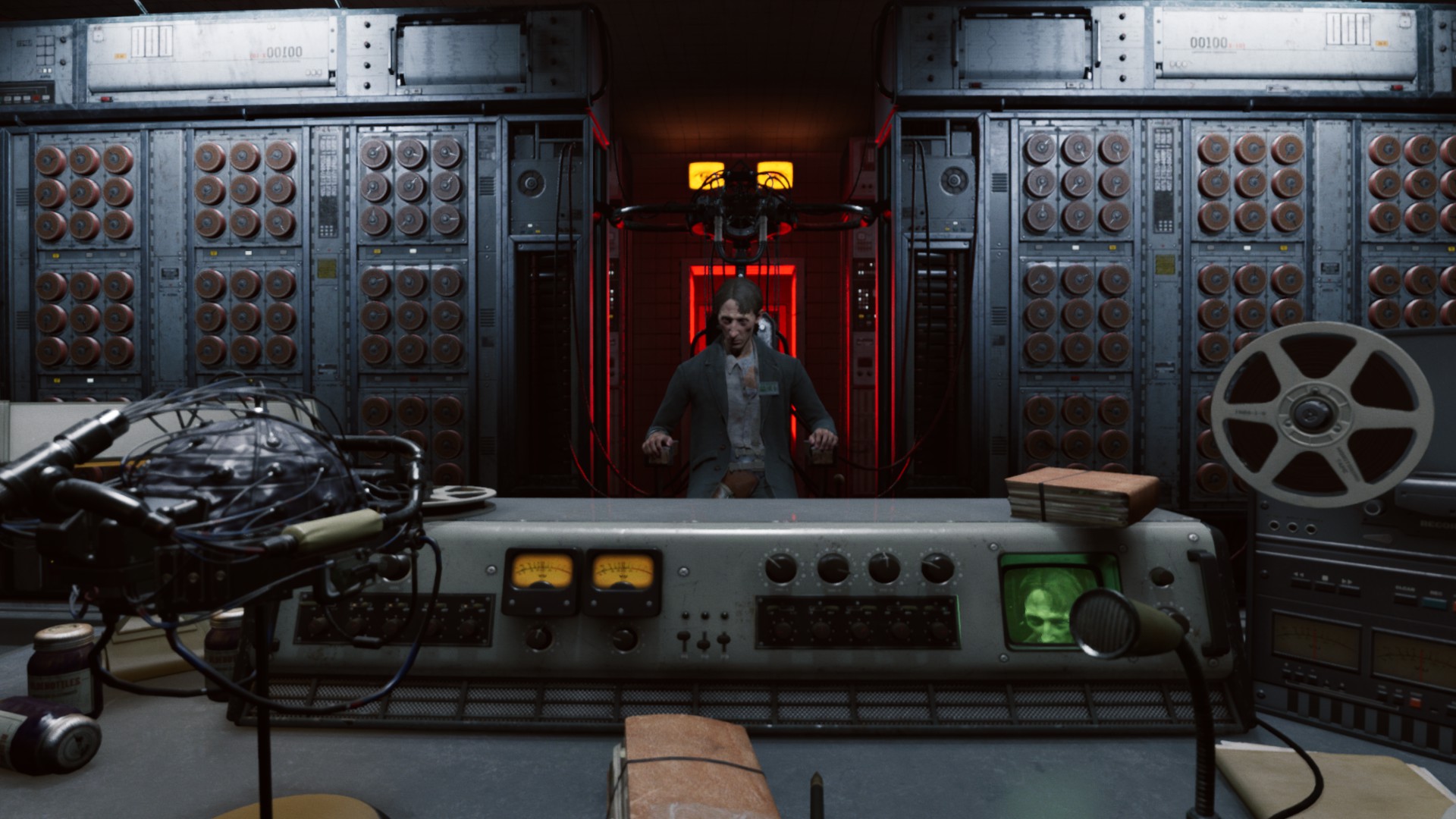
The strength of KARMA: The Dark World’s narrative is most evident during the opening investigation, where you assume the role of Daniel McGovern, a ROAM Agent and thought handler who has spent the past eight years interrogating suspects through memory capture.
By diving into and reliving the memories of others, the game blurs the line between objective reality and subjective experience, forcing you to question not only the narrative’s reliability but also the very nature of truth itself. Your investigation begins at the Winston Research Institution.
Light rain taps against the glass, distant thunder rumbles, and the pale glow of moonlight casts long shadows along the corridors. A light switch bears the ominous inscription ‘Don’t look back’. Intrigued, you turn around only to be momentarily greeted by a fading image of a mysterious figure.
Continuing the investigation, you see what appeared to be a figure in the corner peering from around the corner. Summoning the courage to approach, you discover it’s nothing more than a coat hanger draped with a coat and hat. This moment, while trivial, encapsulates KARMA’s approach to horror – psychological discomfort, where you scare yourself rather than engaging in the standard tropes other horror games do.
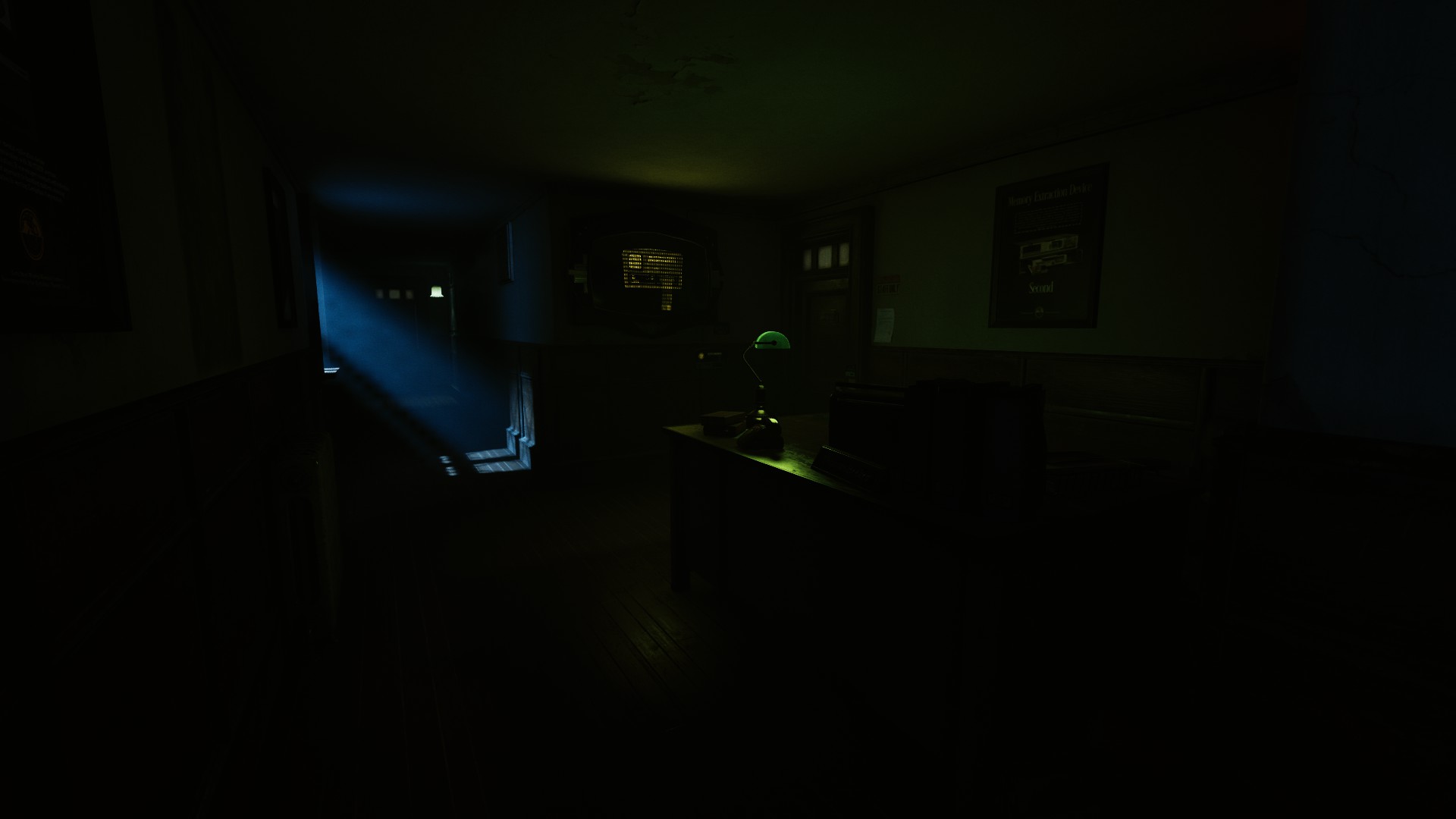
Puzzles play a significant role in advancing the narrative, and for the most part, they are intuitive and logically designed, however, there are times when hints would’ve been welcomed. Sean’s investigation involves a diary entry that mentions a painting that has since been removed. Using the Telescreen, however, you can view previously taken photos of the missing painting to decipher the password and obtain the relevant key card to progress. The combination of intuitive detective work and surreal investigations is where the game has us question what is real and what is a dream and serves as a narrative tool of control.
As I delved in and out of Sean’s memories and learned about a mysterious substance called Dasein, I felt as much intrigue as I did fear for the man. The emotions KARMA evoked in me were like few other games had ever done. It captured me entirely to think and feel what Daniel did, provoking me to question everything, not only about the suspects I was interrogating but also Leviathan. This theme resonates throughout the game as you navigate a series of memories where time becomes fluid, and themes such as censorship, control, love, sacrifice, and success are intricately explored.
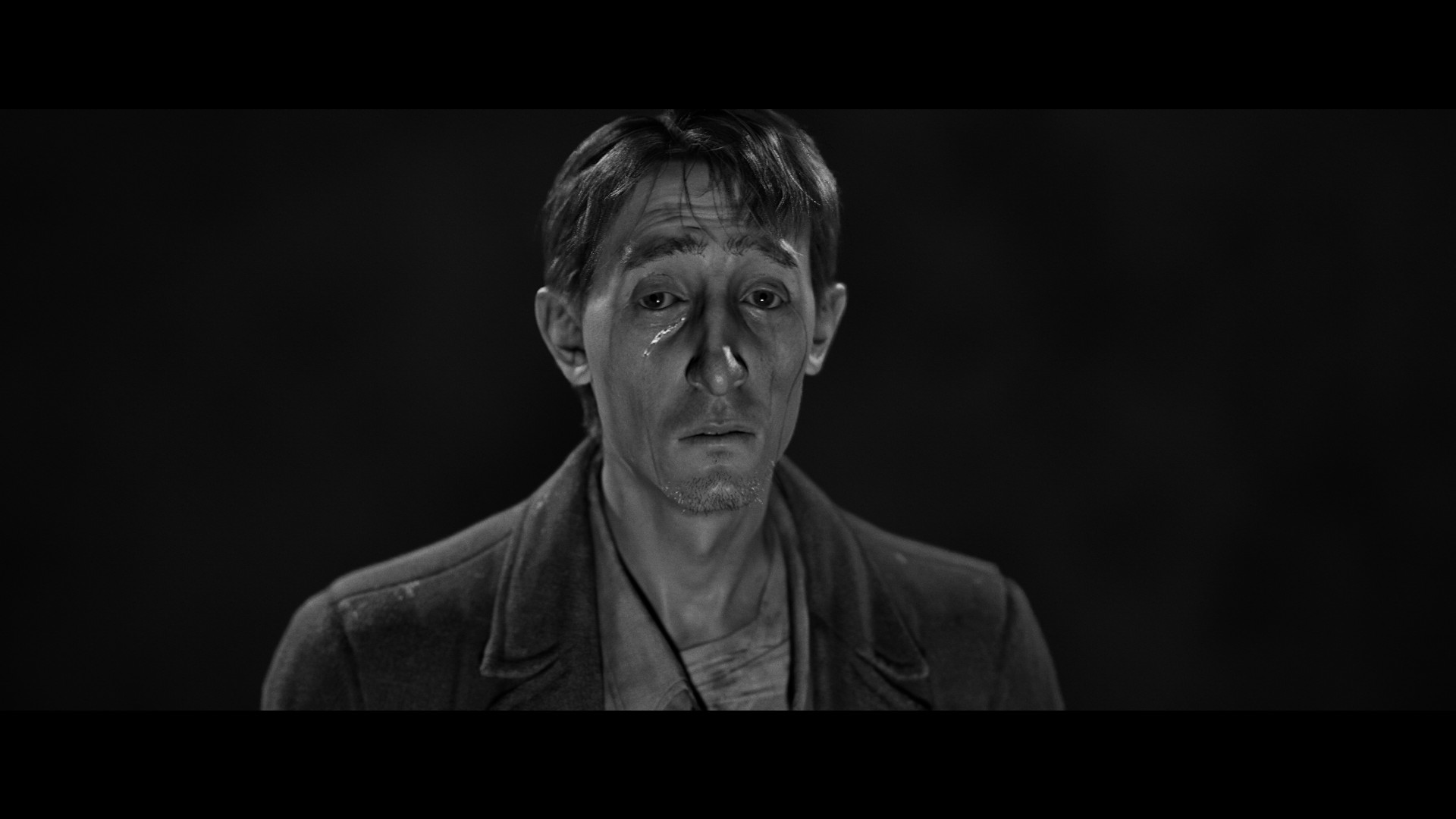
Character portrayals in KARMA: The Dark World are exceptional. The combination of accurate motion capture and compelling voice acting fills the narrative with a raw authenticity that you feel on a deep-seated level. These performances, coupled with the stunning visuals powered by Unreal Engine 5, enhance the immersion greatly. The use of colours and lighting is masterful, with each scene being meticulously crafted to guide your attention without relying on overt cues like such as bright markings or intrusive audio hints.
Realistic reflections, dynamic shadows, and detailed textures create an environment that feels both lifelike and surreal. Remarkably, despite its ambitious visual design, the game runs smoothly without any noticeable performance issues, unlike other UE5 titles. Complementing the characters and visuals is a haunting soundtrack that perfectly fits the KARMA’s uneasy atmosphere, using ambient tracks and mysterious soundscapes to further enforce the sense of unease.
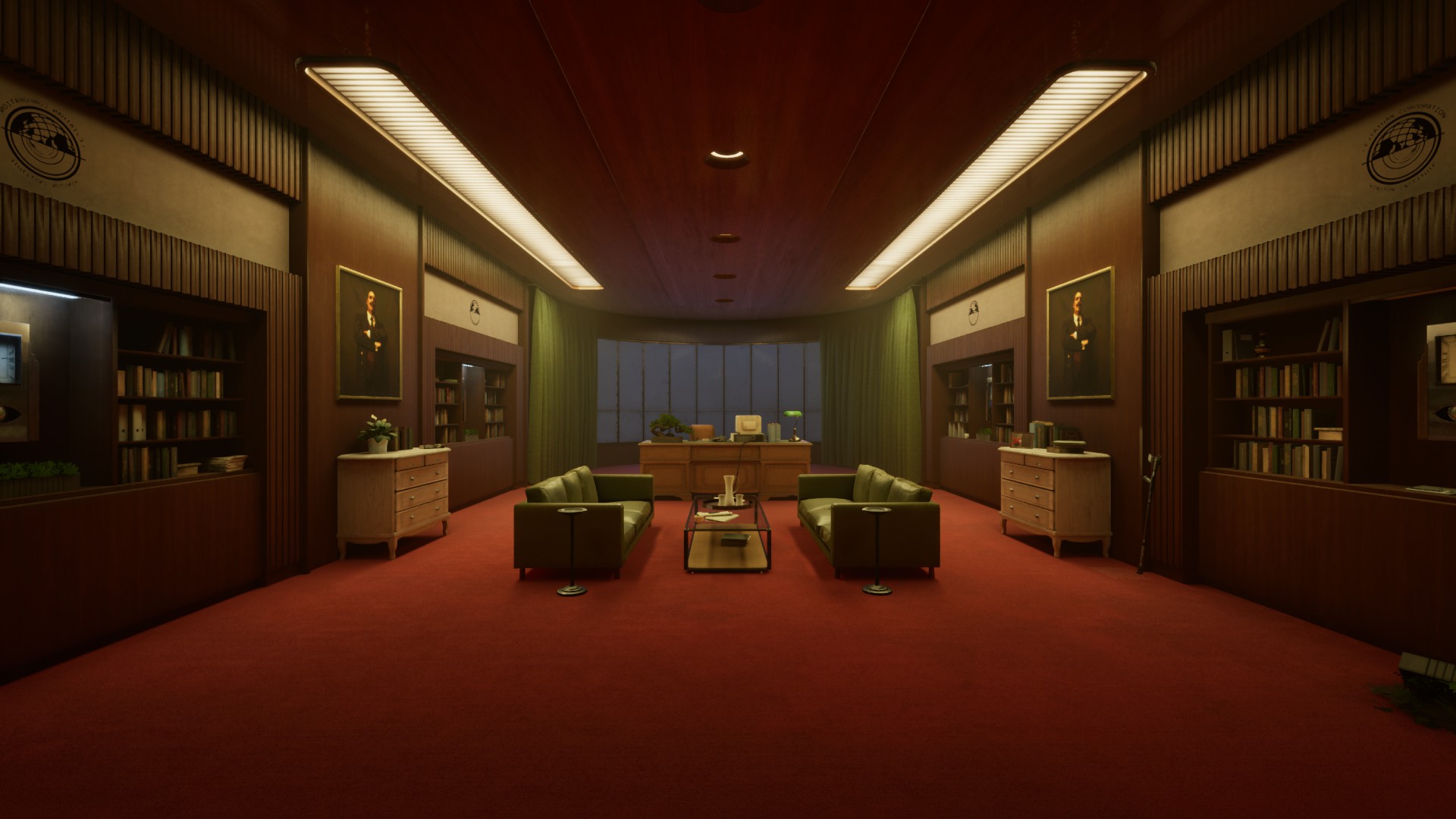
KARMA: The Dark World is tailored for fans of psychological thrillers and surreal storytelling. Its narrative is layered and complex, demanding that you pay attention as you uncover the secrets of the Leviathan Corporation. The meticulous art direction and sound design are a testament to immersive worldbuilding, creating an experience that is as thought-provoking as it is unsettling. While the full game lasts between eight to ten hours, it left lingering questions in my head long after the end credits rolled.
It’s a title that not only serves to entertain but also invites you to question the very nature of reality. I found it an unforgettable entry in the psychological horror genre, and I especially loved how it challenges you to confront the complexities of control, identity, and the human mind in a dystopian setting. Whether you’re a fan of Lynchian surrealism, Orwellian dystopianism, or simply enjoy a mix of survival horror and walking simulator genres, KARMA: The Dark World delivers an unforgettable journey that will resonate with you long after the end credits roll.
KARMA: THE DARK WORLD REVIEW
FANTASTIC
8
Pollard Studio has created something special in KARMA: The Dark World, perfectly depicting Lynchian surrealism with Orwellian dystopian themes in this unique psychological thriller experience. Featuring lifelike character portrayals, ingenious environmental storytelling, and stunning visuals, it delivers an unforgettable journey that will resonate with you long after the end credits roll. While the final hour feels rushed, I loved how the game challenges you to confront the complexities of control, identity, and the human mind, making it a must play for fans of the genre.
PROS
-
Perfectly depicts Lynchian surrealism & Orwellian dystopianism
-
Lifelike character portrayals
-
Ingenious environmental storytelling
-
Takes full advantage of Unreal Engine 5 without impacting performance
CONS
-
The final hour feels rushed
-
Lack of hints may deter some
Reviewed on PC. A review code was provided by the Publisher for purposes of this review.
